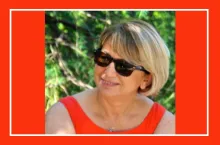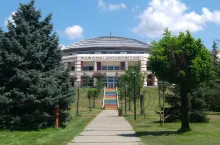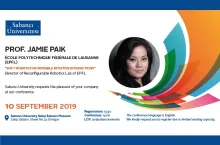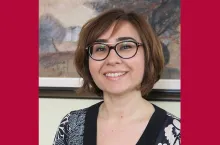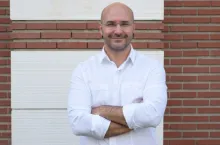Sabancı University convened a high-level energy technology R&D roadmap meeting, gathering 23 international energy technology R&D center directors and top experts from the leading U.S., European and Asian universities.

The roadmap meeting was hosted by Ms. Güler Sabancı, Founding Chairman of the Sabancı University Board of Trustees and chaired by Prof. Yusuf Leblebici, President of Sabancı University. Dr. Fatih Birol, Executive Director of the International Energy Agency, shared his precious insights at the meeting.
Prof. Hasan Mandal, President, TÜBİTAK; Doç. Dr. Şiir Kılkış, Advisor to the President of TÜBİTAK; Prof. Mehmet Yıldız, Vice President, Sabancı University; Prof. Fuat Keyman, Vice President, Sabancı University; Mr. Rasim Karas, Secretary General, Sabancı University; Dr. Oğuz Can, Advisor to the Minister of Energy and Natural Resources; Mr. Barış Sanlı, Advisor to the Minister of Energy and Natural Resources; Mr. Cenk Alper, CEO, Sabancı Holding; Mr. Kıvanç Zaimler, Energy Group President, Sabancı Holding; Prof. Carmine Difiglio, Director, Istanbul International Center for Energy and Climate (IICEC); Mr. Bora Şekip Güray, Director of Research, IICEC; and Dr. Mehmet Doğan Üçok, IICEC Coordinator, were the participants from Turkey.
Complementary to its existing centers, Sabancı University plans to support Turkey’s development of clean energy technologies by establishing a new Energy Technology R&D Laboratory (R&D Lab). This would materially contribute to the emerging disruptive science and technologies that will shape our clean energy future. As one of the first steps towards this important goal, Sabancı University convened a high-level energy technology R&D roadmap meeting, gathering 23 international energy technology R&D center directors and top experts from the leading U.S., European and Asian universities.
They were joined by senior officials from the Ministry of Energy and Natural Resources and TÜBİTAK, who provided their insights on how energy technology research can advance Turkey’s clean energy future. The discussions were wide ranging; including which clean energy technologies would be the best research targets, what are the success factors to evaluate the performance of an energy technology center; how to attract the best talent; and what partnership avenues with industry would work best. Sabancı University will continue consultation with prominent actors in clean energy research in order to design a state-of-the-art Energy Technology R&D Lab, taking into account its existing capabilities and competitive advantages.
A new research center is timely since Turkey is one of the fastest growing emerging countries and developing energy economies of the world and has a well-developed energy strategy centered around: increased use of local and renewable energy resources; improved energy efficiency; and localization of energy technologies. This last priority would benefit the most from more in-house energy R&D in Turkey. Being a leader in technology and research, Sabancı University is well positioned to support these national goals, at the same time also advancing global energy goals.
Prof. Yusuf Leblebici, President of Sabancı University, said that “The Energy Technologies R&D Roadmap Forum, organized by IICEC in Istanbul on 16 September 2019, has been extremely successful. The meeting has attracted a stellar group of world-renowned experts in various specialty areas of the energy domain, as well as high-level representatives of Sabancı University administration and the Sabancı Group companies. The discussion forum provided a very fruitful basis for exploring the merits and opportunities in energy technologies research, and helped us construct a viable roadmap for establishing world-leading R&D activities in this domain, at Sabancı University. The outcomes of this meeting will certainly serve as the foundation of a leading research and development center, at our university.”
The distinguished international participants of the meeting are as follows: Prof. Simone Hochgreb, Professor, Department of Engineering, Cambridge University, UK; Prof. Bilge Yıldız, Professor of Nuclear Science and Materials Science, MIT, USA; Prof. Donald Sadoway,Professor of Materials Chemistry, MIT, USA; Prof. Jimmy Chen, Managing Director for Energy 3.0, Precourt Institute for Energy, Stanford University, USA; Prof. Gary Brudvig, Director of Energy Sciences Institute, Yale University, USA; Prof. Andrew M. Rappe, Blanchard Professor of Chemistry, Professor of Materials Science and Engineering Co-Director, Pennergy, University of Pennsylvania, USA; Prof. Sergio Kapusta, Interim Executive Director at Rice Energy and Environment Initiative, Rice University, USA; Prof. Pulickel Ajayan, Founding Chair at the Department of Materials Science and Nano-Engineering, Rice University, USA; Prof. Hamid Arastoopour, Director of Wanger Institute for Sustainable Energy Research (WISER), The Illinois Institute of Technology, USA; Prof. Tara Chandra Kandpal, Professor of Solar Energy at the Centre for Energy Studies, Indian Institute of Technology, Delhi, India; Prof. Jun Arima, Professor and Senior Policy Fellow for Energy and Environment, University of Tokyo, Japan; Prof. Serdar Sarıçiftçi, Professor for Physical Chemistry, Johannes Kepler University, Linz, Austria; Prof. Suren Erkman, Professor and Head of the Industrial Ecology Group, University of Laussane, Switzerland; Prof. AbuBakr S. Bahaj, Director of Energy and Climate Change Division and the Sustainable Energy Research Group, University of Southampton, UK; Asso. Prof. Erik Schaltz, Department of Energy Technology, The Faculty of Engineering and Science Power Electronic Systems, Aalborg University, Denmark; Prof. Philip Eames, Director of Centre for Renewable Energy Systems Technology, Loughborough University, UK; Prof. İskender Gökalp, Director of the French National Centre for Scientific Research, University of Orléans, France; Prof. Xudong Zhao, Director of Research, Energy and Environment Institute, University of Hull, UK; Prof. Detlef Stolten, Director, Institute of Energy and Climate Research, Institute of Energy and Climate Research, Jülich, Germany; Prof. Mark Modera, Interim Faculty Director, Energy and Efficiency Institute, UC Davis, USA; Prof. Jian Sun, Director of New York State Center for Future Energy Systems, Rensselaer Polytechnic Institute, USA; Prof. Douglas Halliday, Chair of Energy & Environment Platform, Energy & Environment Platform, Belgium; Prof. George Chen, Chair Professor of Electrochemical Technologies, Faculty of Engineering, University of Nottingham Ningbo, China.
Prof. George Chen gave a lecture to Sabancı University faculty members and graduate students on advanced energy storage technologies on the following day.



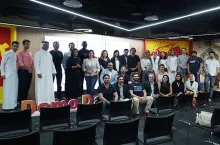
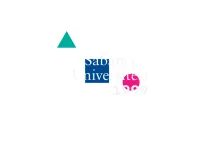
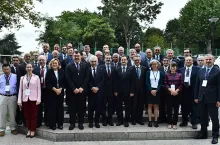

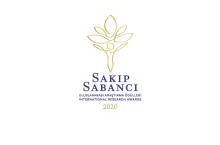


 Cengiz Tekin and Sedat Akdoğan’s joint work “Climate of Another Universe” speak of the agony of impending humanitarian, cultural, political, moral and political destruction that will wreak havoc on our world with humble poetic license and naive irony. According to the artists, deep rifts caused by humans, culture and history interrupt the flow between different worlds and create a bottomless foundation for the world. Consisting of four videos depicting the destructive power of humankind in a symbolic fashion, “Climate of Another Universe” is an interpretation that explores ontological, mental and physical boundaries while melding and blending different worlds, areas and systems.
Cengiz Tekin and Sedat Akdoğan’s joint work “Climate of Another Universe” speak of the agony of impending humanitarian, cultural, political, moral and political destruction that will wreak havoc on our world with humble poetic license and naive irony. According to the artists, deep rifts caused by humans, culture and history interrupt the flow between different worlds and create a bottomless foundation for the world. Consisting of four videos depicting the destructive power of humankind in a symbolic fashion, “Climate of Another Universe” is an interpretation that explores ontological, mental and physical boundaries while melding and blending different worlds, areas and systems. 